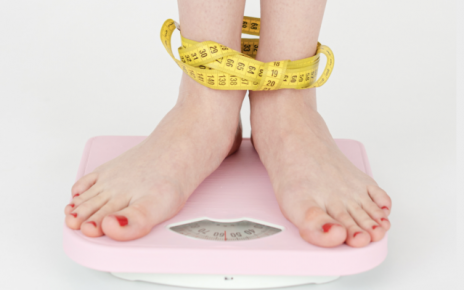 Wondering why your feed is filled with tips on how to declutter your space? Clean mildew out of the showers. Swap your regular detergent for a better-for-the-environment one? It’s National Cleaning Week, or, as one of my clients put it, national “feeling bad because my house is a mess and I have zero interest in doing anything about it” week.
Wondering why your feed is filled with tips on how to declutter your space? Clean mildew out of the showers. Swap your regular detergent for a better-for-the-environment one? It’s National Cleaning Week, or, as one of my clients put it, national “feeling bad because my house is a mess and I have zero interest in doing anything about it” week.
Even though having a clean, organized space can increase your focus, reduce stress, and sometimes even improve your relationships, most people are far too busy to embrace the decluttering-is-awesome mindset,1 but is it really a lack of time that prevents you from doing it or is something else at work?
I’m willing to bet there are lots of things in your home you’re not using (hello, burnt up plastic food storage lids), but for some reason, you just can’t bring yourself to throw anything away or even donate it.
Why Can’t You Get Rid of Stuff?
Jean Piaget, one of the founding fathers of child psychology, says the reason we’re so attached to our belongings is due to a psychological phenomenon called the Endowment Effect.2 Basically, we put more value on items we own versus items we don’t own.
There have been tons of studies on this phenomenon too. Like this one where participants were divided into three groups, then asked to assist with research and given a reward for helping out.3 The first group was offered two choices for their reward: a coffee mug or a bar of chocolate. Half chose the mug, and the other half chose the chocolate, which suggests that they valued each reward equally. In the second group, participants were given the mug first, then offered a chance to swap it for the chocolate bar, but only 11% took the researchers up on the offer. A third group started out with the chocolate bar, and most preferred to keep it instead of swapping it for the mug, which was offered after the fact.
The participants always put greater value on whichever reward they started off with.
Decluttering Has an Emotional Component
Another reason it’s so hard to part with your stuff? According to this study published in the Journal of Consumer Psychology, it all comes down to self-worth.4 Rather than looking at the things you own as “mine” you think of them as part of who you are.
If you value relationships, you might have trouble parting with gifts. Kind of like you’re being disloyal to the person who gave it to you. If you value success, it could be challenging to part with items that serve as a reminder of your accomplishments, like an award at work or a decades-old trophy from your high school soccer days.
Some possessions also make you feel closer to people. Take family heirlooms for example. Maybe you’re having a hard time getting rid of a piece of artwork or jewelry that was passed down from your great grandma, because those items make you feel connected to her.
There are lots of reasons decluttering can make you feel bad. Here are a few more that might come up for you:
- You tell yourself you might need it in the future. You’ve never used this item, but it could come in handy someday! To avoid regret, you believe it’s safer to hang on to it. You know, just in case.
- You spent a lot of money on it. You feel guilty for wasting money on something you don’t use (or no longer use), so you hang on to it to feel less guilty about the situation.
- There’s a sentimental attachment. This is the most common reason people struggle to declutter. After all, you have important memories around this item!
- Having lots of belongings gives you a sense of security. Purging things around the house can make you worry that you won’t have it when you need it. This scarcity mindset makes you hang on to your belongings, purely for a sense of security.
- You feel overwhelmed and don’t know where to start. Depending on how much you have to purge, it can be a big job. One that can be physically, emotionally, and mentally draining.
Sometimes attachments to things can go too far like in hoarding disorder, which is an exaggerated sense of responsibility and protection toward your belongings. That’s why people with this condition find it so hard to get rid of stuff — they feel like they have an obligation to own them.
Get Ready to Conquer Purging Paralysis
Even though we’re a few years past the Marie Kondo-ing “sparking joy” trend, knowing how to calmly and confidently declutter your space is a skill you’ll want to tap into. For the record, mastering this skill isn’t about having enough garbage bags and fresh Sharpies on hand. It’s about learning the proven behavior-change strategies that can take you from holding on to letting go.
- Understand That You’re Wired This Way. Your brain is wired to value the things you own (this is the Endowment Effect in action), even if you don’t give them a second glance. Just knowing the psychological reasons why your possessions feel so important to you can help loosen your grip.
- Let Time Heal Your Attachment. You’ll always be reminded of how much your old jeans from college mean to you if they’re in plain sight. Try putting them in a box in the back of your closet or garage for a few months. They might be easier to donate away after some time has passed.
- Reframe the Situation. If getting rid of your things brings on feelings of guilt or sadness, try looking at your situation from a different perspective. Donating items is a great way to bring joy to someone else. And if you happened to sell something, you could get some much-needed cash out of the deal. Oh, and by the way, you’re not intentionally hurting someone by giving away a gift. Appreciate the happiness you got from receiving it, then move on.
- Recognize What You Value. Decluttering doesn’t mean purging everything you own. Take this opportunity to see what you really value, like a family heirloom or something you worked really hard at earning, and know that those items can still have a place in your home.
- Know You’re Braver Than You Think. Change is scary. And giving away or throwing away stuff you find meaningful can be one of the hardest things you do. But once you’ve done it once or twice and start to recognize the reasons you’re holding onto things, it becomes easier to let them go.
5 Strategies for Letting Go of Clutter
It’s more than deciding what to keep, what to donate, and what to throw away. Decluttering has deep psychological roots and it’s totally understandable why it’s not as easy as filling a bag with giveaway items and driving to your nearest nonprofit. Whether you’re hesitant to purge old clothes, broken kitchen gadgets, or items you’ve inherited, or you just don’t know where to begin, use these strategies to take baby steps toward decluttering.
- Understand That You’re Wired This Way
- Let Time Heal Your Attachment
- Reframe the Situation
- Recognize What You Value
- Know You’re Braver Than You Think
What about you? Do you have a hard time letting go of things?
The post How to Let Go of Clutter without Feeling Like a Jerk appeared first on Mark's Daily Apple.





